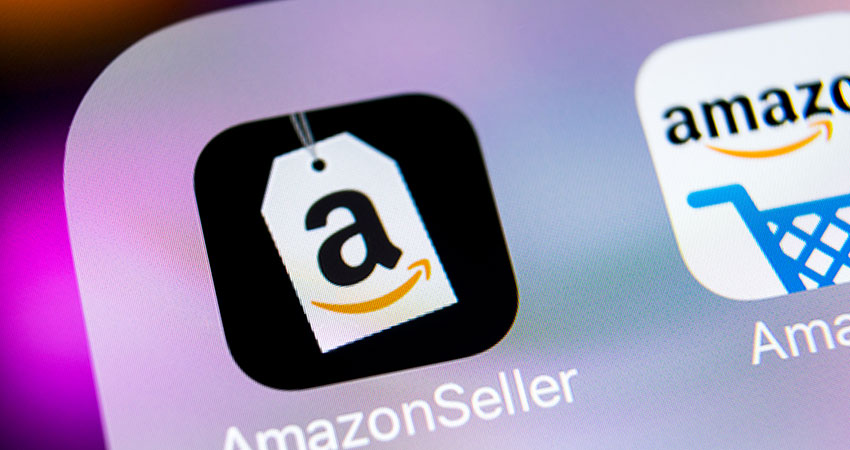Amazon as of Sept. 1 will require third-party sellers in the U.S. to provide their business name and address in their seller profile, a requirement that has been in place for some time in Europe, Japan and Mexico based on government regulations.
It’s unclear what benefit this will have for consumers, as most probably don’t check out seller profiles on Amazon. But seeing a business name and address may create more of a perception of authenticity, although they can easily be faked by sellers.
Also uncertain is what if any impact this will have on the huge problem of counterfeit goods on Amazon’s marketplace, for which the company has taken considerable heat. Late last month the company launched a counterfeit task force that includes former federal prosecutors.
In a note to sellers announcing the change, Amazon played up the transparency angle.
“These features help customers learn more about the businesses of a seller and the products that they are selling,” Amazon said in the note in Seller Central. “We are making this change to ensure there is a consistent baseline of seller information to help customers make informed shopping decisions.”
Amazon further encouraged sellers to add other profile information that buyers might find helpful, but cautioned against adding an email address, communicating instead through the marketplace’s communication tool.
The response from sellers, based on the comments section of the announcement, seems to be a mixed bag. While some understood the need for accountability and transparency for consumers, others raised privacy concerns.
“Wow. Goodbye! I don’t want to give the entire planet my home address,” said a seller identified as Sheik.
Many commenters advised other sellers to create a post office box or a business address through some other venue, such as a local UPS store. But one seller identified as Life of a Kind countered by noting that creation of a PO box as a primary address would make Amazon verification tricky as that requires having a matching utility bill.
Jewels Authority went a step further: “Dear Amazon, thank you for putting my life in danger because, as you might already know you have many, many lunatic buyers on your platform, now they will know where I am located and you are putting me in physical danger.”
“100% in favor of this,” said another seller identified as Big Mick. “I suspect that most of us who are actual businesses (thus, already subject to our info being publicly available) will be in favor of this. Hopefully it will make it a little bit harder for IP thieves and other unscrupulous actors to hide behind the anonymity of the marketplace format.”
Juozas Kaziukenas, founder and CEO of business intelligence firm Marketplace Pulse, said in a blog post the move will benefit the ecommerce industry “in ways that are invisible to consumers.”
“The change doesn’t prevent sellers from faking business details or establishing new business entities when they want to appear unrelated to a previously suspended or just another seller account,” Kaziukenas wrote. “(It’s) a common practice among international sellers because Amazon’s vetting of business details is imperfect. But additional transparency will perhaps enable third-party companies to analyze those business entities better than Amazon.”
Kaziukenas applauded the move, saying “commerce shouldn’t be anonymous.”
“Making sellers’ business identities public is the right step, and further tightening rules around business identities used for selling on Amazon would be a welcome change too,” he said.
James Thomson, co-founder of Amazon seller advisory Buy Box Experts, said he expects many brands to go after unauthorized sellers after Sept. 1, sending threatening letters in the hopes that they’ll abandon their products. But he quickly added sellers are protected by first sale doctrine, an established case law principle which allows them to purchase and resell goods without fear of legal repercussion.
“In 99% of cases brands will have no legal basis for pursuing them,” Thomson said. “That’s legal protection for unauthorized sellers, and there are hundreds of thousands of them. In fact, Amazon was built on recruiting sellers with no questions asked about where they got products from. They’re not bound by minimum advertised price (MAP) rules and can sell for less, creating price erosion which is good for Amazon but terrible for brands.”
There are ways brands can protect themselves from unauthorized sellers, but it takes more work and legal investment than most are willing to invest. “Because most brands haven’t invested in policies requiring sellers to adhere to things like certain types of material handling or quality control, first sale doctrine remains active,” he said.
Thomson speculated that Amazon CEO Jeff Bezos’ pending testimony at a July 27 antitrust hearing before the House Judiciary Committee, along with the CEOs of Apple, Facebook and Google parent Alphabet, may have had something to do with the timing of the news.
“It’s a good story in terms of policy, demonstrating what they’re doing to protect consumers and sellers,” he said. “Amazon has a lot work to do to clean up counterfeits, but it’s not about cleaning up unauthorized sellers, that’s a growth engine. But until Amazon can prove that customers can use (business name and address) information to avoid unscrupulous sellers, I don’t understand how that works.”

